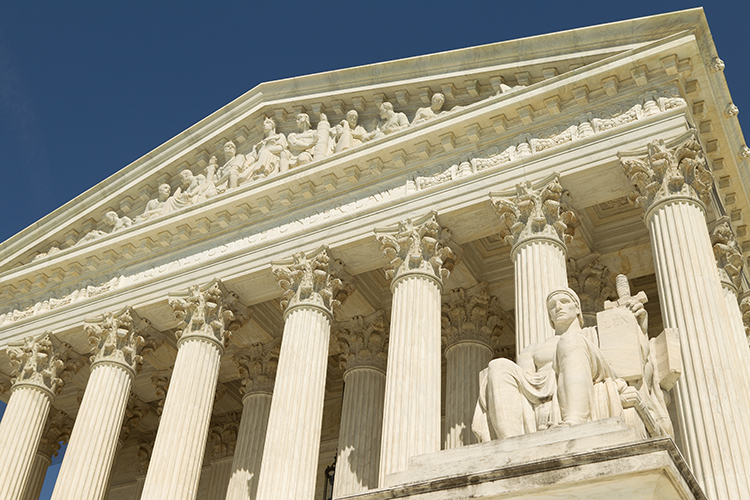Second federal execution since 2003 is carried out after Supreme Court lifts injunctions

Image from Shutterstock.com.
Federal inmate Wesley Ira Purkey was executed Thursday morning after the U.S. Supreme Court lifted two injunctions issued by a judge who cited competency issues.
The Supreme Court’s liberal justices dissented from the majority’s decision to allow the execution to proceed. The Indianapolis Star, the Washington Post and CNN have coverage.
Justice Stephen G. Breyer wrote one of the dissents, joined by Justice Ruth Bader Ginsburg. Justice Sonia Sotomayor wrote the second dissent, joined by Justices Ginsburg, Breyer and Elena Kagan.
Purkey was sentenced to death for kidnapping, raping and killing 16-year-old Jennifer Long in 1998. In his last statement, Purkey said he regretted the pain and suffering he caused the victim’s family, according to the Indianapolis Star account. “This sanitized murder really does not serve no purpose whatsoever,” he said.
U.S. District Court Judge Tanya Chutkan had issued a preliminary injunction delaying the execution on Wednesday, saying Purkey’s claims deserved a fair hearing. Chutkan said Purkey had experienced sexual abuse as a child, had suffered multiple traumatic brain injuries, and suffers from dementia, schizophrenia and post-traumatic stress disorder. The U.S. Court of Appeals for the D.C. Circuit did not disturb Chutkan’s order.
Sotomayor said 68-year-old Purkey has Alzheimer’s disease and does not believe he is being executed for murder, Instead, Purkey believes he is being executed in retaliation for jailhouse lawyering. He also has a history of delusions, hallucinations and paranoia.
The government had argued Purkey’s beliefs don’t demonstrate incompetency for execution, and in any event, his claim was filed in the wrong venue.
Sotomayor said the government’s “cursory arguments” regarding the merits of Purkey’s claims don’t justify “second-guessing of the district court’s highly factbound assessment.”
Breyer once again called for reexamining the constitutionality of the death penalty.
He noted that the Supreme Court had cleared the way for the execution of Daniel Lewis Lee on Tuesday, the first federal execution since 2003.
Breyer said Lee’s execution “revealed the inherent arbitrariness of the death penalty.” Lee was sentenced to death and his co-defendant to life even though the two men committed the same crime.
Breyer also said the cases of both Lee and Purkey raise issues of excessive delay in carrying out the death penalty.
Prolonged delays create immense anxiety for inmates on death row and reduce the death penalty’s deterrent effect, Breyer said.
Write a letter to the editor, share a story tip or update, or report an error.


